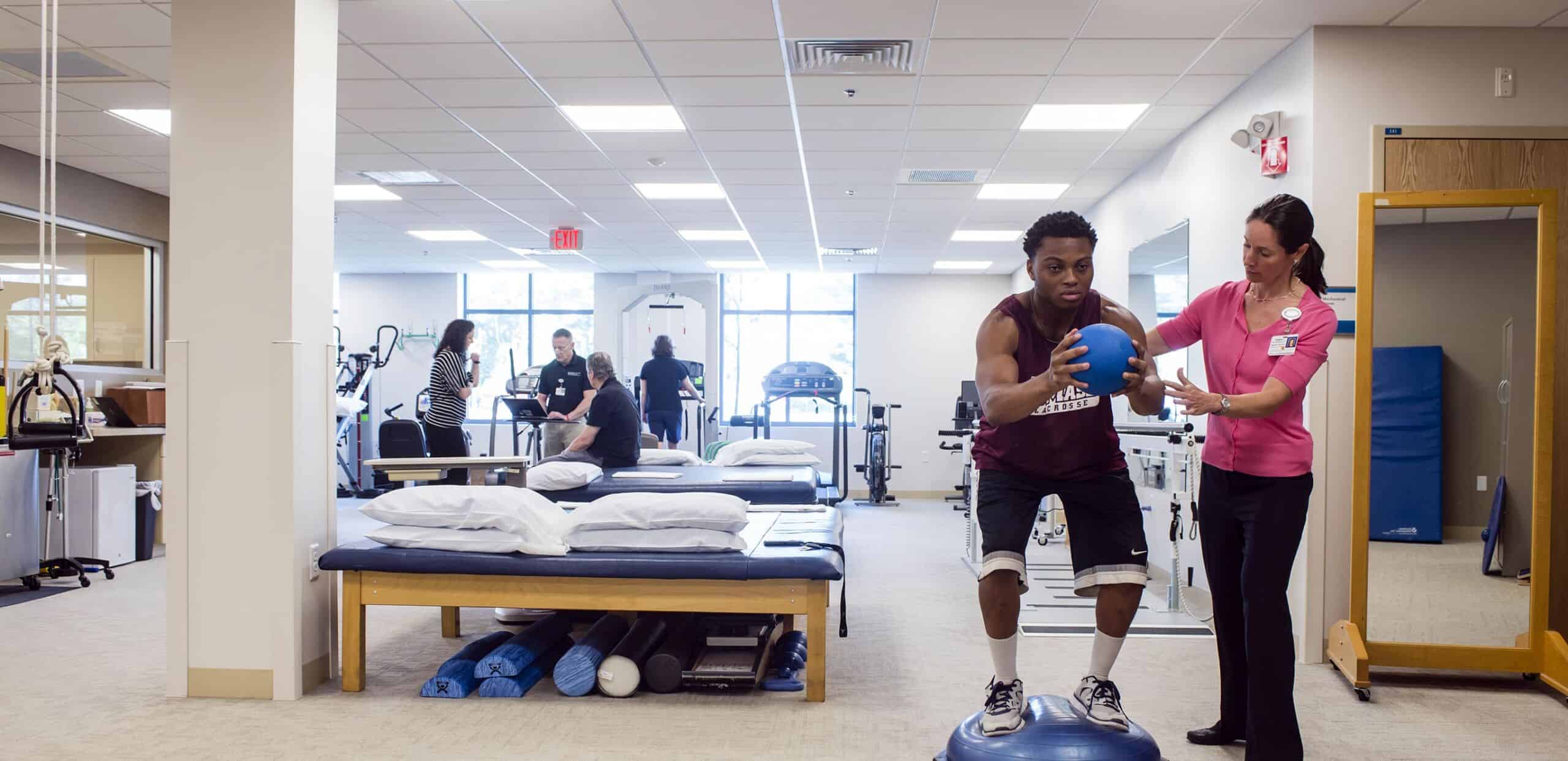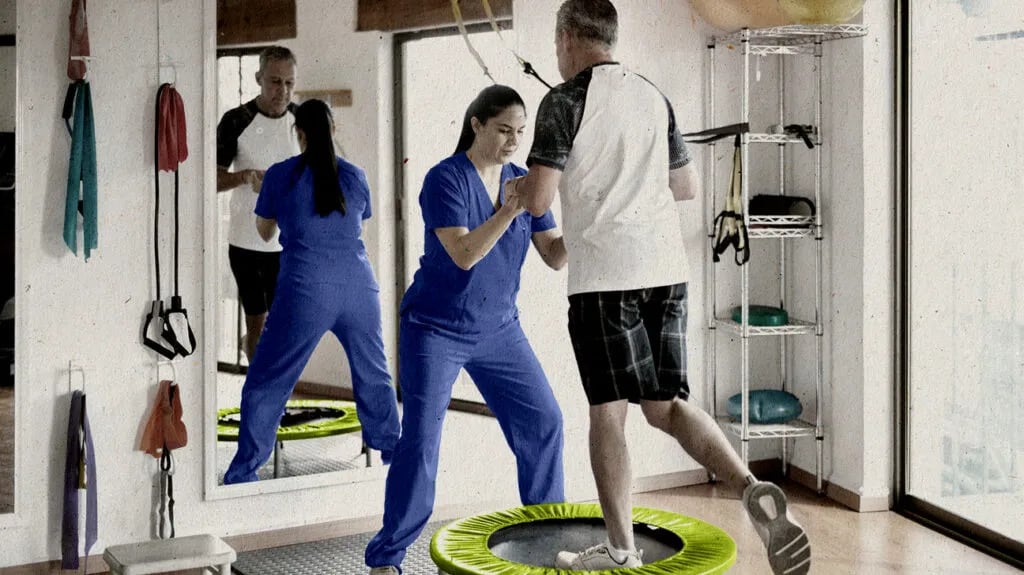How Physical Therapy Can Improve Your Quality Of Life
Enhancing Your Life Through Physical Therapy
Quality of life is a paramount aspect of our overall well-being, encompassing physical, mental, and social dimensions. It directly influences our happiness and satisfaction with life. In this blog, we’ll explore how physical therapy is a vital catalyst in improving and maintaining our quality of life. As we delve into this topic, we will discuss the role of physical therapy in managing pain, preventing chronic conditions, aiding in rehabilitation, and even enhancing mental health. By the end of this discussion, you will understand how professional physical therapy can be a life-changing resource for enhancing your well-being and overall quality of life.
Understanding Quality of Life
Quality of life is a multifaceted concept that encompasses our overall well-being and happiness. It’s not just about the absence of illness; it also includes physical health, mental well-being, social connections, and a sense of purpose. A high quality of life means we’re free from discomfort and suffering and enjoying life to the fullest.
In professional physical therapy, understanding the importance of quality of life is crucial. It is the foundation for recognizing how physical therapy can significantly enhance well-being.
The Role of Physical Therapy
Physical therapy is a crucial aspect of healthcare, addressing various physical issues such as injury rehabilitation and chronic pain management. Skilled professionals help individuals regain mobility, reduce pain, and enhance their physical well-being.
- Rehabilitation: One of the primary roles of professional physical therapy is in rehabilitation. Whether recovering from a sports injury, surgery, or an accident, physical therapists develop tailored treatment plans to help you regain strength, mobility, and functionality.
- Pain Management: Physical therapists are experts in identifying the sources of pain and developing strategies to manage and reduce it. They employ various techniques to alleviate pain and discomfort, including manual therapy, exercises, and modalities.
- Chronic Condition Management: Individuals with chronic conditions such as arthritis or diabetes can benefit significantly from professional physical therapy. Therapists assist in managing the symptoms, improving functional abilities, and enhancing these patients’ overall quality of life.
- Fall Prevention: Falling is a significant concern, especially among older adults. Physical therapists can assess an individual’s balance and gait and create programs to reduce the risk of falls, ultimately preserving their independence.
- Enhancing Performance: Athletes often turn to physical therapists to optimize their performance. These professionals help athletes recover from injuries, improve strength and flexibility, and offer guidance on injury prevention.
- Mental Health: Physical therapy doesn’t just focus on the physical aspects of health; it also plays a role in mental well-being. Engaging in physical activity has been shown to reduce stress, anxiety, and depression, and physical therapists often incorporate this into their treatment plans.
Pain Management and Improved Mobility
Pain is an unwelcome companion that can significantly impact our lives, limiting our mobility and overall well-being. Pain can take a toll on our physical and emotional health, whether it’s the result of an injury, a chronic condition, or even the strains of everyday life. This is where professional physical therapy is a powerful ally in the battle against pain and a key player in improving mobility.
The Role of Physical Therapy
Professional physical therapy is a dynamic field that specializes in assessing, diagnosing, and treating pain and mobility issues. Physical therapists are highly trained healthcare professionals with human movement and anatomy expertise. They develop personalized treatment plans tailored to each patient’s unique needs, focusing on pain management and the restoration of mobility.
- Alleviating Pain: One of the primary objectives of physical therapy is to reduce and alleviate pain. Physical therapists employ various techniques, such as manual therapy, exercises, and modalities like heat and cold therapy, to target the source of the pain. By addressing the root cause, physical therapy offers long-term relief rather than simply masking the symptoms with medication.
- Restoring Mobility: Impaired mobility often accompanies pain, restricting our ability to move freely and engage in daily activities. Physical therapists work with patients to improve mobility through various exercises and interventions. Physical therapy can be transformative, whether it’s regaining the ability to walk, perform daily tasks, or return to sports and recreational activities.
- Personalized Treatment Plans: Each individual’s pain and mobility issues are unique and physical therapists recognize this diversity. They craft personalized treatment plans considering a person’s medical history, lifestyle, and goals. This tailored approach ensures that the treatment addresses the individual’s needs effectively.
Education and Empowerment
Physical therapists treat the immediate issues and educate patients on how to manage their pain and maintain their mobility independently. This empowerment helps individuals take an active role in their health and well-being, reducing the risk of recurrent pain.
Preventing and Managing Chronic Conditions
Professional physical therapy is crucial in preventing and managing chronic conditions like diabetes, heart disease, arthritis, and chronic pain, enhancing quality of life and overall health.
The Chronic Condition Challenge
Chronic conditions are persistent health issues that require ongoing management and care. They can result in pain, reduced mobility, and a decreased quality of life. Preventing their onset or managing their impact is essential to maintaining well-being and reducing healthcare costs.
Prevention Through Physical Therapy
- Lifestyle Modification: Professional physical therapists can guide lifestyle modifications, such as exercise routines and dietary choices, to reduce the risk of chronic conditions. They help individuals adopt healthier habits that stave off diabetes and heart disease.
- Weight Management: Obesity is a significant risk factor for many chronic conditions. Physical therapists can create weight management plans to help individuals maintain a healthy weight and reduce the risk of developing these conditions.
- Exercise Programs: Regular physical activity is a cornerstone of preventing chronic conditions. Physical therapists design exercise programs that are safe and effective for individuals with various health concerns, encouraging them to stay active and reduce their risk.

Rehabilitation and Recovery
Professional physical therapy is crucial for athletes recovering from surgeries and those seeking mobility regainment. It plays a vital role in rehabilitation and healing.
The Rehabilitation Road
Rehabilitation is regaining lost skills or abilities following an injury or medical procedure. It’s a journey that often requires expert guidance, and that’s where professional physical therapy comes into play.
- Injury Recovery: Physical therapists assess injuries, identify limitations, and create personalized treatment plans. They use pain management techniques to reduce discomfort and improve healing. The ultimate goal is to restore functionality.
- Post-Surgery Healing: Post-surgery rehabilitation programs, created by physical therapists, optimize post-operative outcomes and prevent complications like scar tissue formation and joint stiffness, ensuring a smoother recovery for patients.
The Role of Professional Physical Therapy
Professional physical therapy is guided by the principles of evidence-based practice, meaning that treatments are rooted in research and proven techniques. Physical therapists are experts in human movement and musculoskeletal health, and their role in rehabilitation is multifaceted:
- Individualized Treatment: Physical therapists recognize that each person’s situation is unique. They design personalized treatment plans considering the individual’s goals, lifestyle, and needs. This customized approach is essential in achieving a successful recovery.
- Progressive Exercises: Physical therapy involves a structured program of exercises and movements that gradually increase in intensity. This progression is crucial in building strength and flexibility while minimizing re-injury risk.
- Monitoring and Adjustments: Physical therapists closely monitor the patient’s progress throughout the rehabilitation process. They adjust the treatment plan if needed to ensure that the recovery stays on track.
Enhancing Mental Health and Well-Being
Physical therapy, often associated with physical ailments, can also significantly enhance mental health and well-being, contributing to overall balance and happiness and overall life satisfaction.
The Mind-Body Connection
Understanding the connection between the mind and the body is crucial when discussing the role of physical therapy in mental health. The two are intimately intertwined, and changes in one can significantly impact the other.
- Stress and Tension: Physical therapy helps reduce stress and tension by releasing built-up muscular tension. Chronic stress can lead to physical symptoms like muscle tightness and pain, and physical therapy addresses these symptoms, which can have a positive ripple effect on your mental state.
- Endorphin Release: Doing physical activity releases endorphins, often called “feel-good” hormones. These endorphins can help alleviate symptoms of depression and anxiety, boosting your mood and overall mental well-being.
- Body Confidence: Improvements in physical well-being can lead to increased body confidence. Feeling more comfortable and capable in your own body can profoundly impact your self-esteem and mental health.
Pain and Mental Health
Chronic pain is not just a physical burden; it can also take a toll on your mental health. Physical therapists are experts in pain management and can provide relief through various techniques, which, in turn, alleviates the emotional distress associated with chronic pain.
In conclusion, Everyday aches, pains, and injuries can significantly diminish your quality of life. The inability to move comfortably, the burden of chronic pain, and the emotional toll of physical limitations can cast a shadow over your well-being.
Discover the transformativeImagine being free from these constraints, enjoying a life without constant discomfort or limitations. The good news is that professional physical therapy offers a proven solution to improve your quality of life.
power of professional physical therapy. Let our skilled therapists create a personalized plan to address your unique needs and enhance your well-being.
Contact us or visit our website today to start your journey toward a better quality of life. Don’t let pain and physical limitations hold you back any longer.




